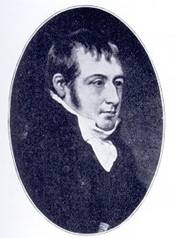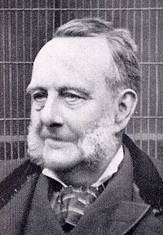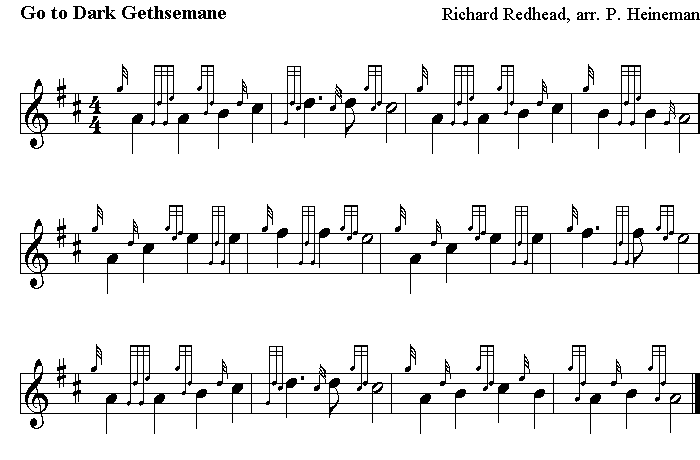
Best viewed in
Internet Explorer
Music (PDF)
Midi
Music (BMW)
Back to

Updated
09/03/2020 |
Go to Dark
Gethsemane

James Montgomery |
The lyrics to “Go to Dark Gethsemane” were written by
James Montgomery (1771-1854).
James Montgomery was a British
editor and poet. Montgomery, poet, son of a pastor and
missionary of the Moravian Brethren, was born at Irvine in
Ayrshire on November 4 1771, and educated at the Moravian School
at Fulneck, near Pudsey in Leeds. After various changes of
occupation and abode, he settled in Sheffield in March 1792 as
clerk to Joseph Gales on the 'Sheffield Register' newspaper. On
July 4th 1794 he launched and edited the Sheffield Iris,
and was twice imprisoned (in 1795, and again in 1796) for
political articles for which he was held responsible. In 1797 he
published Prison Amusements; but his first work to
attract notice was The Wanderer of Switzerland (1806). It
was followed by The West Indies (1809), The World
before the Flood (1812), Greenland (1819), and The
Pelican Island (1828), all of which contain passages of
considerable imaginative and descriptive power, but, according
to literary analysts, are lacking in strength and fire. He
himself expected that his name would live, if at all, in his
hymns, and in this his judgment has proved true. Some of these,
such as "For ever with the Lord", "Hail to the Lord's Anointed",
"Angels from the Realms of Glory, and "Prayer is the Soul's
Sincere Desire", are sung wherever the English language is
spoken. Probably his best-known poems are the one commemorating
Arnold Winkelried and "A Poor Wayfaring Man of Grief".
Montgomery was a good and philanthropic man, the opponent of
every form of injustice and oppression, and the friend of every
movement for the welfare of the race. His virtues attained wide
recognition. |

Richard Redhead |
The editing
of his paper, the composition and publication of his poems and
hymns, the delivery of lectures on poetry in Sheffield and at the
Royal Institution, London, and the advocacy of foreign
missions and the Bible Society, gave great variety, but very
little of stirring incident in his life, though he did find time to
write 400 hymns. In 1833, Montgomery received a royal pension of
£200 per year.
The music was composed by Richard Redhead and published in
Church Hymn
Tunes, Ancient and Modern
(London: 1853). Redhead began his
musical career as a chorister at Magdalen College, Oxford. He
went on to play the organ at Margaret Chapel, London (later named
All Saints Church, Margaret Street). In 1864, he moved to St. Mary
Magdalene, Paddington, where he served as organist for 30 years.

Lyrics by James Montgomery
|
|
Go to dark Gethsemane, ye that feel
the tempter’s power;
Your Redeemer’s conflict see, watch with Him one bitter hour,
Turn not from His griefs away; learn of Jesus Christ to pray.
See Him at the judgment hall, beaten,
bound, reviled, arraigned;
O the wormwood and the gall! O the pangs His soul sustained!
Shun not suffering, shame, or loss; learn of Christ to bear the
cross. |
Calvary’s mournful mountain climb;
there, adoring at His feet,
Mark that miracle of time, God’s own sacrifice complete.
“It is finished!” hear Him cry; learn of Jesus Christ to die.
Early hasten to the tomb where they
laid His breathless clay;
All is solitude and gloom. Who has taken Him away?
Christ is risen! He meets our eyes; Savior, teach us so to rise. |
|




